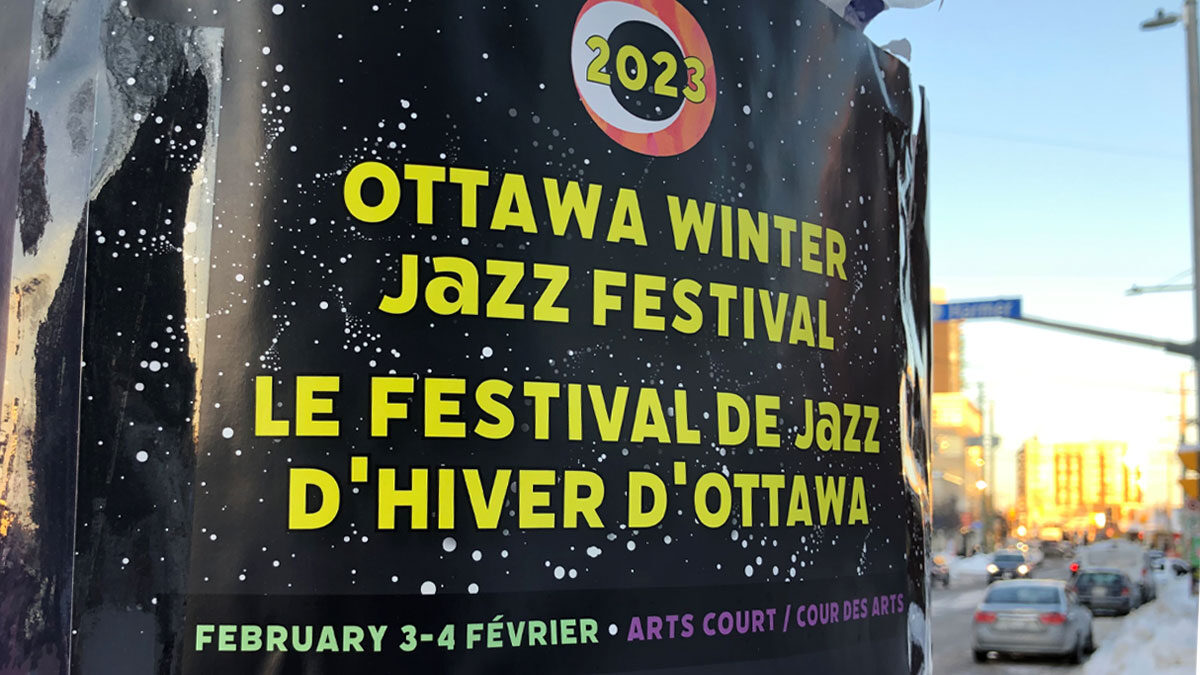Local cultural events like Ottawa Jazz Festival are recovering from the pandemic, but they face a new problem: lack of international tourists.
The festival is one of the capital’s best-known tourist events. For example, in an article on the best destinations to visit in 2023, CNN Travel highlighted the festival as a main attraction in Ottawa, alongside the Rideau Canal and Parliament Hill.
Every year, around 12 per cent of attendees come from outside Ottawa according to Suzan Zilahi, Ottawa Jazz Festival’s director of marketing and partnerships. She said many fly in from Europe or Asia.
“Some people specifically travel [to Ottawa] every year [for] our events,” Zilahi said. “Our programming is highly acknowledged by both musicians and tourists.”
“I don’t know if any one of us can get back to the way things were before COVID, but certainly from the music standpoint … people are hungering for it. They want it, and it’s something that helps to take them through the dark days.”
Suzan Zilahi, Ottawa Jazz Festival director of marketing and partnerships
At the summer 2022 Ottawa Jazz Festival, its first in-person event since the start of the pandemic, the international audience had all but vanished. That 12 per cent came almost exclusively from other Canadian provinces, Zilahi said, with only around 900 people from the United States.
This decrease in international travellers is part of a recent trend in Canada’s tourism industry. According to Statistics Canada, the country made $19.5 billion from tourism overall in August 2022, around 18 per cent less than in August 2020. Revenue from international tourists, however, was down 33 per cent over that same period.
Ottawa’s tourism industry alone has lost out on around $3.5 billion in profits since the start of the pandemic, said Jantine Van Kregten, general director of Ottawa Tourism, which promotes Ottawa-based events to residents and tourists.
“We like to say that [tourism was] the first hit, the hardest hit, and we will be the last to recover from the pandemic,” Van Kregten said.
To underline the impact, she said 20-40 per cent of the 43,000 employees in Ottawa's tourism industry lost their jobs because of COVID-19.
Van Kregten said one of the key things the organization is advocating for is reopening Ottawa International Airport’s direct flights to London, England and Frankfurt, Germany. She added this would increase tourist traffic in Ottawa and boost accessibility to events like Ottawa Jazz Festival. In a bit of good news, Air France announced in early February that it would start operating direct flights from Ottawa to Paris in June.
“The impact is cushioned by the fact we’re physically close to Montreal and Toronto, who have those international flights, but we all know it’s easier to fly direct someplace than have layovers. That direct air access is a priority,” Van Kregten said.
The Ottawa Jazz Festival has also not fully recovered its domestic relevance. According to Zilahi, people have been hesitant to attend because “we’re not completely over COVID-19.”
Only 89,000 people attended their summer 2022 festival. This was higher than Zilahi's predictions, but a third the size of the last pre-pandemic festival in summer 2019, which had around 290,000 attendees.
The 2023 winter jazz festival was a bigger success, Zilahi said. Between Feb. 3-4, more than 2,000 people braved a cold snap to listen to Sarah Neufeld, Kenny Barron and Thus Owls. This is up from pre-pandemic winter festivals, which had around 1,500 attendees.
Zilahi said she is unsure what attendance will look like going forward, but the Ottawa Jazz Festival team will announce the bulk of its lineup this week. Their next festival, which starts June 23, will include performances from Herbie Hancock, Buddy Guy, Arrow After, Vijay Dyer and Shahzad Ismaily, and Snarky Puppy.
“I don’t know if any one of us can get back to the way things were before COVID, but certainly from the music standpoint … people are hungering for it," Zilahi said. "They want it, and it’s something that helps to take them through the dark days."




